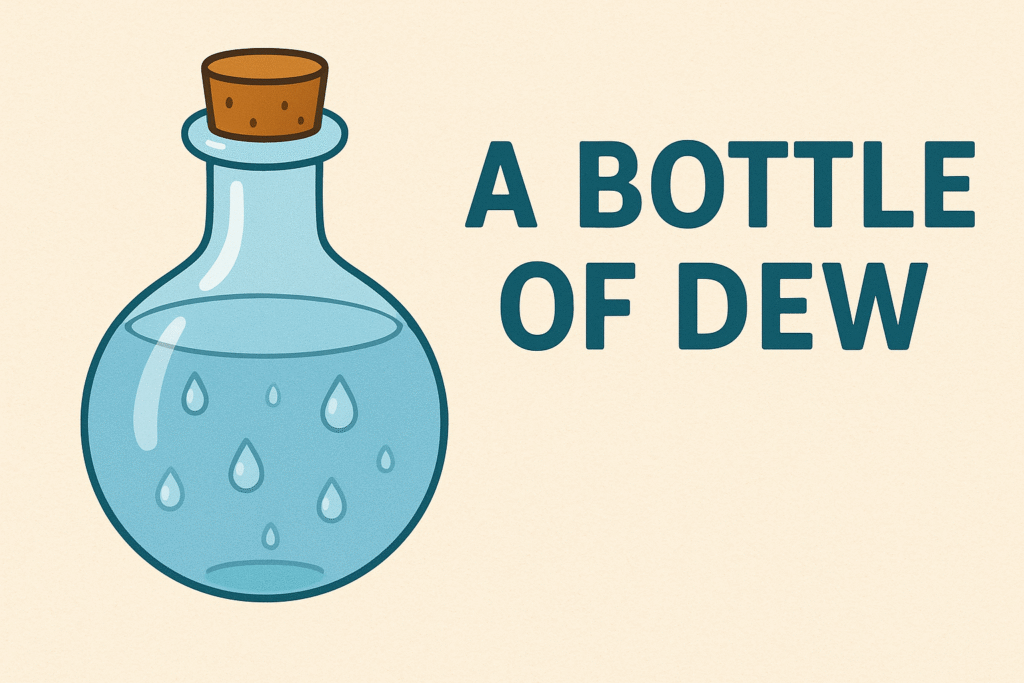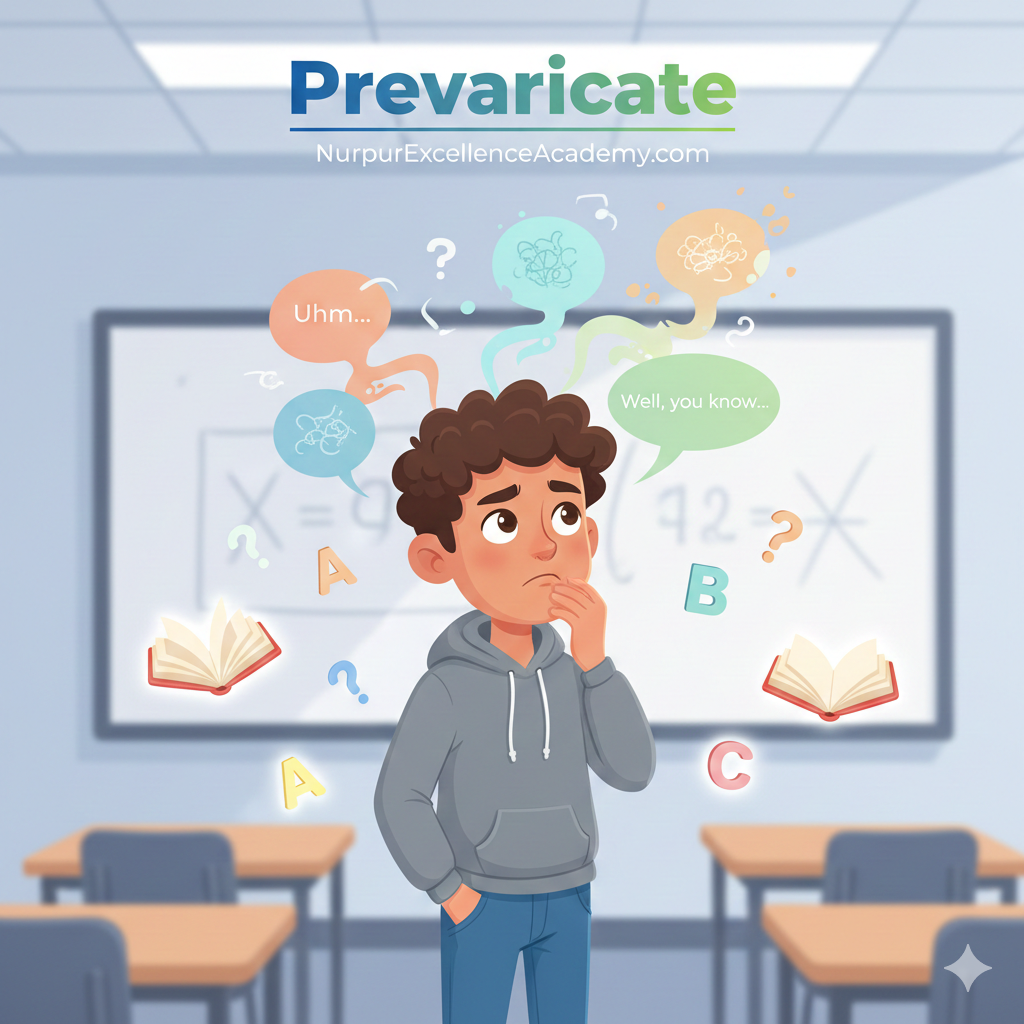Get NCERT Solutions for Class 6 English (Poorvi) Chapter 1 A Bottle of Dew from Unit 1 – Fables and Folk Tales. Easy answers, summaries, and explanations for all textbook questions. Perfect for students and teachers.
📖 A Bottle of Dew (Fables And Folk Tales) – Questions and Answers | Class 6 English Unit 1 | NCERT Solutions
Are you searching for NCERT Solutions for Class 6 English (Poorvi) Unit 1 – A Bottle of Dew?
This lesson is part of Fables and Folk Tales and is written by Sudha Murty. The story teaches us that true wealth comes from hard work and not from shortcuts or magic.
In this post, you will get the complete set of Questions and Answers from the textbook in simple Class 6 level English. These solutions will help students understand the lesson better and prepare for exams. Teachers can also use them in classrooms for easy explanation.
Before Reading (Page 1)
Q1. Think of a time when you worked hard. What did you do then?
Ans: I worked hard when I prepared for my exams. I studied every day.
Q2. How did it help you?
Ans: It helped me to remember lessons and write answers well.
Q3. How did it make you feel?
Ans: I felt happy and proud of myself.
Let us discuss (Page 3)
Q1. What did Rama Natha believe?
Ans: He believed there was a magic potion that could turn things into gold.
Q2. How did the sage help Rama Natha?
Ans: The sage asked him to plant banana trees and collect dew so that he would learn the value of hard work.
Q3. Do you think Rama Natha will be able to collect the dew? Give a reason.
Ans: Yes, because he planted many banana plants and worked regularly.
Let us discuss (Page 5)
Q1. Why was Rama Natha angry?
Ans: He was angry because the potion did not work and he thought he had wasted six years.
Q2. How did Rama Natha and Madhumati create wealth?
Ans: They created wealth by growing bananas, selling them in the market, and earning money.
Let us think and reflect (Page 6–7)
Part 1
Q1(i). Rama Natha did not ‘give up’ because…
Ans: …he wanted to find the magic potion.
Q1(ii). What happened – Outcome
| What happened | Outcome |
|---|---|
| People promised to tell Rama Natha about the potion | They cheated him |
| Rama Natha was spending a lot of money | His wife was worried |
Q1(iii). True/False
- A. Madhumati was troubled → True
- B. Rama Natha was very happy digging his fields → False
- C. The sage wanted to show the right path to Rama Natha → True
Part 2
Q2(i). Order of events
Correct option: (d) A, D, B, E, C
Q2(ii). Fill in the blank
Ans: Seeing that the plant had dried up, the gardener sprinkled some water on it.
Q2(iii). How might Rama Natha have felt when nothing happened?
Ans: He felt shocked, sad, and angry.
Part 3 – Comprehension Questions
Q1. What did the sage ask Rama Natha to do to make the magic potion?
Ans: He asked him to plant banana trees, collect dew, and bring it to him.
Q2. Why did the sage ask Rama Natha to do everything himself?
Ans: Because only hard work by himself could bring real results.
Q3. How could Rama Natha have a big banana plantation after six years?
Ans: He kept planting more bananas, took care of them, and worked regularly.
Q4. How did the sage make Rama Natha believe that there is no magic potion?
Ans: He showed him that the money actually came from selling bananas, not from magic.
Q5. Before and After Table
| Before meeting the sage | After meeting the sage |
|---|---|
| (i) He wasted money searching for magic potion. | (i) He worked hard on the land. |
| (ii) He did not look after his fields. | (ii) He planted bananas and earned money. |
Let us learn (Page 8–9)
Q1. Paragraph with homophones
Ans:
There was a farmer who had a huge coconut plantation. He worked hard and did not depend on luck. Every day was difficult but he did not give up. One day, a man bought a bag of coconuts from him, and promised to pay him the money the next day. Days passed and the man did not pay him anything. The farmer felt cheated. About two months later, he met the same man and asked him about his money. The man said, “Oh! I had forgotten. Now, I remember buying coconuts from you.” And he paid the money.
Q2. Make sentences with four homophone pairs
- I ate eight bananas for breakfast.
- I can see the sea from my house.
- The sun is shining while the son is playing.
- She won the race by one point.
Q3. Match the phrases
- The children submitted their work before the deadline.
- He did not want to try rock climbing because of his fear of heights.
- The children ran towards the gate as soon as the bell rang.
- Nitin was late to school today as there was a traffic jam.
Q4. Tongue Twister (own example)
“Sita sells six sweet sugarcane sticks.”
Let us listen (Page 10)
Correct order of events (Madhumati and bananas):
1 → Visits her mother
2 → Goes to the market
3 → Meets her friend Kalawati
4 → Gives 12 bananas to Kalawati
5 → Decides to go home
6 → Gives 2 bananas to a hungry boy
7 → Visits her neighbour
Let us speak (Page 10–11)
Q1. What does hard work mean to you?
Ans: Hard work means doing something with full effort and not giving up.
Q2. Three reasons why hard work is important
Ans:
- It helps us succeed.
- It makes us confident.
- It gives us happiness.
Q3. Three ideas for someone who needs to work hard
Ans:
- Make a plan and follow it.
- Work regularly every day.
- Do not give up if it is difficult.
Let us write (Page 11–12)
Q1. Description of a banana (sample sentences)
- I like to eat a banana during break.
- The smell of a banana is fruity and fresh.
- Banana is healthy because it gives energy.
- The outer covering feels smooth.
- The taste of banana is sweet and creamy.
- The outer covering is yellow.
- The fruit inside is white.
- Banana is filling and good for skin.
Q2. Script writing
(Students can prepare a short play based on Rama Natha, Madhumati and the sage – answers may vary.)
Q3. Explore
Students find out varieties of bananas in India (like Robusta, Rasthali, Poovan, etc.).

The answer key for Class 6 English Poorvi Unit 1 (Fables And Folk Tales) – A Bottle of Dew helps students in reading, writing, grammar, spelling, listening, and fun activities.
These simple answers make learning enjoyable and exam preparation easier.




Leave a Reply